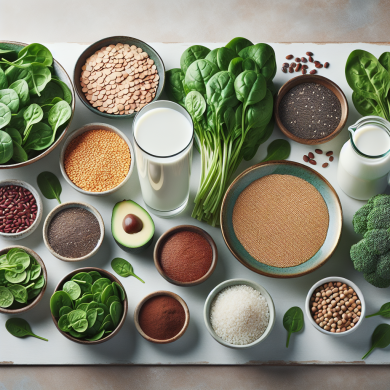Boost Gut Health with a Vegetarian Diet
Introduction
Gut health has emerged as a pivotal aspect of overall wellness, influencing everything from digestion to immunity and even mental health. A robust gut microbiome can enhance nutrient absorption, reduce inflammation, and help fend off various diseases. One effective way to boost gut health is through a vegetarian diet. This article will explore how a vegetarian diet can improve gut health, the best foods to include, and practical tips for making the transition.
The Importance of Gut Health
The gut microbiome consists of trillions of microorganisms that reside in the digestive tract. These include bacteria, fungi, viruses, and other microbes. A balanced microbiome is crucial for breaking down food, synthesizing vitamins, and protecting against pathogens. An imbalance, known as dysbiosis, can lead to digestive issues, weakened immunity, and chronic diseases like obesity and diabetes.
How a Vegetarian Diet Benefits Gut Health
Rich in Fiber
A vegetarian diet is inherently rich in dietary fiber, found abundantly in fruits, vegetables, legumes, and whole grains. Fiber acts as a prebiotic, providing nourishment for beneficial gut bacteria. Soluble fiber, found in oats and beans, forms a gel-like substance that aids in digestion, while insoluble fiber, found in whole grains and vegetables, adds bulk to stools, preventing constipation.
Diverse Phytochemicals
Vegetarian diets are packed with phytochemicals, which are bioactive compounds found in plants. These include flavonoids, carotenoids, and polyphenols, which have antioxidant and anti-inflammatory properties. Phytochemicals can modulate gut microbiota composition, promoting the growth of beneficial bacteria while inhibiting harmful ones.
Reduced Saturated Fats
Animal products are often high in saturated fats, which can negatively impact gut health by promoting the growth of harmful bacteria. A vegetarian diet, being lower in saturated fats, supports a healthier balance of gut flora, reducing the risk of inflammation and related diseases.
Key Vegetarian Foods for Gut Health
Fermented Foods
Fermented foods like yogurt, sauerkraut, kimchi, and tempeh are rich in probiotics, which are live beneficial bacteria. These foods help maintain a healthy gut microbiome by introducing beneficial bacteria and enhancing microbial diversity.
Legumes
Beans, lentils, and chickpeas are excellent sources of fiber and resistant starch, a type of carbohydrate that resists digestion and acts as a prebiotic. Including legumes in your diet can boost the growth of beneficial bacteria and improve bowel regularity.
Whole Grains
Whole grains such as oats, quinoa, and brown rice are high in fiber and provide essential nutrients like B vitamins and minerals. Their resistant starch content supports the growth of healthy gut bacteria.
Fruits and Vegetables
Fruits and vegetables are rich in vitamins, minerals, and antioxidants. Leafy greens, berries, bananas, and apples are particularly beneficial for gut health. They provide fiber and polyphenols, which promote a balanced gut microbiome.
Practical Tips for Transitioning to a Vegetarian Diet
Start Gradually
Transitioning to a vegetarian diet should be a gradual process to allow your digestive system time to adapt. Start by incorporating more plant-based meals into your diet and gradually reducing meat consumption.
Focus on Variety
To ensure a balanced intake of nutrients, include a wide variety of plant-based foods in your diet. Experiment with different vegetables, grains, and legumes to keep meals interesting and nutritionally diverse.
Plan Your Meals
Meal planning can help ensure you consume a balanced diet that meets all your nutritional needs. Consider preparing meals in advance to avoid the temptation of processed foods, which can negatively impact gut health.
Monitor Nutrient Intake
While a vegetarian diet can be nutritionally complete, it’s essential to monitor certain nutrients that may require attention, such as vitamin B12, iron, and omega-3 fatty acids. Consider fortified foods or supplements if necessary.
Stay Hydrated
Adequate hydration is essential for digestion and overall health. Drinking plenty of water supports the movement of fiber through the digestive tract and helps maintain a healthy gut environment.
Overcoming Common Challenges
Digestive Discomfort
Some individuals may experience digestive discomfort during the transition to a vegetarian diet due to increased fiber intake. To minimize this, gradually increase fiber consumption and ensure adequate water intake to aid digestion.
Social and Cultural Factors
Social gatherings and cultural expectations can pose challenges for those adopting a vegetarian diet. Communicate your dietary preferences to friends and family, and offer to bring a vegetarian dish to share at events.
Finding Vegetarian Options
Dining out or traveling may present challenges in finding vegetarian options. Research restaurants in advance, and don’t hesitate to ask for modifications to menu items to suit your dietary needs.
The Impact of a Vegetarian Diet on Overall Health
Adopting a vegetarian diet offers numerous health benefits beyond gut health. Studies have shown that vegetarians often have a lower risk of heart disease, hypertension, type 2 diabetes, and certain cancers. A plant-based diet is also associated with improved weight management and longevity.
Conclusion
Boosting gut health through a vegetarian diet is a rewarding journey that offers numerous health benefits. By incorporating fiber-rich foods, fermented products, and a diverse array of fruits and vegetables, you can cultivate a balanced gut microbiome. With careful planning and a gradual approach, transitioning to a vegetarian diet can be a sustainable and enjoyable lifestyle choice that enhances overall well-being.















Add comment